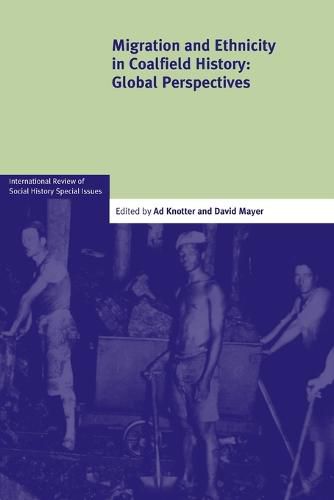Readings Newsletter
Become a Readings Member to make your shopping experience even easier.
Sign in or sign up for free!
You’re not far away from qualifying for FREE standard shipping within Australia
You’ve qualified for FREE standard shipping within Australia
The cart is loading…






Coal has been fundamental for the development of industrial and transport technologies since the nineteenth century. Globalisation, including colonialism, would not have been possible without coal-based energy and thus the exploitation of coal in every part of the world. But coal mining is a labour-intensive activity and mine operators had to find, mobilise and direct workers to these sites to enable exploitation. The recruitment of miners often targeted groups with a perceived inferior status. This turned coal mining communities into dense social spheres characterised by the intricate dynamics of ethnic identifications, interracial relations and class formation. The twelve articles presented in this volume cover cases from Africa, Asia, the Americas, Turkey, the Soviet Union and Western Europe, as well as a broad range of topics, from segregation, forced labour and subcontracting, to labour struggles, discrimination, ethnic paternalism and sports.
$9.00 standard shipping within Australia
FREE standard shipping within Australia for orders over $100.00
Express & International shipping calculated at checkout
Coal has been fundamental for the development of industrial and transport technologies since the nineteenth century. Globalisation, including colonialism, would not have been possible without coal-based energy and thus the exploitation of coal in every part of the world. But coal mining is a labour-intensive activity and mine operators had to find, mobilise and direct workers to these sites to enable exploitation. The recruitment of miners often targeted groups with a perceived inferior status. This turned coal mining communities into dense social spheres characterised by the intricate dynamics of ethnic identifications, interracial relations and class formation. The twelve articles presented in this volume cover cases from Africa, Asia, the Americas, Turkey, the Soviet Union and Western Europe, as well as a broad range of topics, from segregation, forced labour and subcontracting, to labour struggles, discrimination, ethnic paternalism and sports.